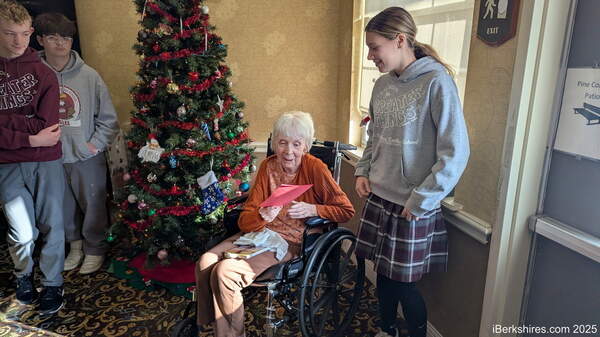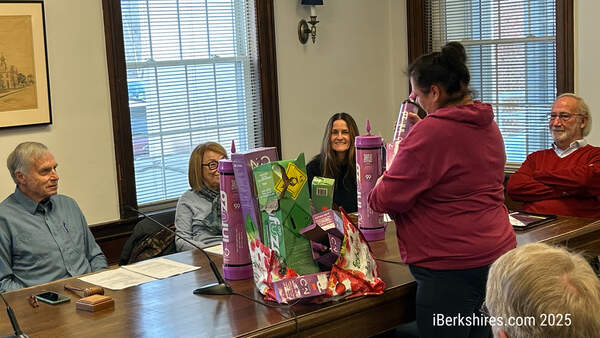Tom Loughman To Serve As Assistant Deputy Director At The Clark
WILLIAMSTOWN, Mass - Thomas J. Loughman has been named assistant deputy director at the Sterling and Francine Clark Art Institute. Loughman will be working with the Clark leadership on a variety of initiatives as the Clark continues to grow as one of the country's outstanding art museums and a global leader among centers for research.Loughman is a 1995 graduate of the Clark/Williams College Graduate Program in the History of Art. He received his A.B. in 1993 from Georgetown University, where he was a George F. Baker Scholar, with a dual major in international relations and art history. In 2003 he graduated with a Ph.D. in art history from Rutgers University after completing a dissertation on Renaissance art patronage-the result of two years of research in Florence, Italy, funded by the Fulbright, the Kress Foundation, and other prestigious fellowships.
"We are very pleased to have Tom join the Clark at this important time in our institutional growth," said director Michael Conforti. "Tom has insight into the Clark's values-ingrained years ago during his time in the graduate program-and a variety of experiences from large, urban museums and a blend of curatorial and administrative talents. His energy and dynamism will serve us well."
Loughman began working in museums fifteen years ago, while still a student, with notable internships at the National Gallery of Art, the Metropolitan Museum of Art's Lehman Collection, and the Isabella Stewart Gardner Museum. After a brief engagement in the Clark's director's office in 1995, he went on to hold a two-year, NEA-supported post at the Philadelphia Museum of Art in its department of prints, drawings, and photographs, and continued working there on special projects during his Ph.D. coursework. In 2002-2003, Loughman served as visiting assistant professor at Pennsylvania State University. From January 2004 to October 2008, Loughman was the Phoenix Art Museum's curator of European art, assuming additional responsibilities with his appointment to a concurrent role as the assistant to the director for exhibitions in January 2007. Loughman is also a recent graduate of the prestigious Museum Leadership Institute at the Getty in Los Angeles.
An active member of several international associations allied to the arts, Loughman is a specialist in Italian art and particularly interested in drawings and sculpture. As a curator, he has organized and installed over a dozen major exhibitions, including the Phoenix presentations of traveling projects ranging from Degas sculpture (2004) to Rembrandt and the Golden Age (with the Rijksmuseum, Amsterdam, 2007) to Mexican Modernism (with Philadelphia Museum of Art, 2007). He organized, wrote, and edited catalogues for such projects as Fierce Reality: Italian Masters from Seventeenth Century Naples (December 2006 to March 2007) and A Century of Irish Art: Selections from the Brian P. Burns Collection (March to May 2007).
The Clark
Set amid 140 bucolic acres in the picturesque Berkshires, the Clark is one of the few major art museums in the United States that also serves as a leading international center for research and scholarship. In addition to its extraordinary collections, the Clark organizes groundbreaking special exhibitions that advance new scholarship and presents an array of public and educational programs. The Clark's research and academic programs include an international fellowship program and regular conferences, symposia, and colloquia. Its programs draw university and museum professionals from around the world. The Clark, together with Williams College, sponsors one of the nation's leading master's programs in art history and encompasses one of the most comprehensive art history libraries in the world.
In June 2008, the Clark opened Stone Hill Center, the first phase of its expansion and campus enhancement project. Designed by Pritzker Prize-winning architect Tadao Ando, the 32,000-square-foot wood and glass building houses intimately scaled galleries, a meeting and studio art classroom, an outdoor café, and the Williamstown Art Conservation Center (WACC). The second phase of the Clark's expansion and institutional enhancement program includes the creation of another new, stand-alone building designed by Ando that will house special exhibition galleries, visitor orientation services, and education and conference spaces. Scheduled for completion in 2013, Phase II also encompasses the upgrade and internal expansion of the Clark's current buildings by Annabelle Selldorf.















